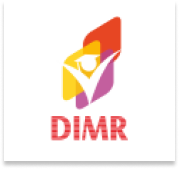Code of Conduct
Code of Conduct
(As Displayed on the Notice Board)
1. Attendance and Academic Commitment
• Regular Attendance: Students must maintain a minimum of 75% attendance per semester as per SPPU norms.
• Class Participation: Attendance is mandatory for all regular classes, guest lectures, seminars, and special sessions.
• Leave Policy: Obtain prior permission for any planned absences. Submit written applications along with supporting documents for social, personal or medical leaves with Class Coordinator.
• Assignment & Evaluation: Timely submission of all assignments and active participation in internal evaluations is mandatory.
2. Identity Card (I-Card)
• Students must wear their I-card at all times while on campus or attending institutional events.
• In case of loss or damage to the I-Card, report immediately to the institute. A duplicate card will be issued as per institutional rules.
3. Dress Code
• College Uniform: Compulsory on Thursdays & Saturdays and official occasions.
• Formal Wear: Required on all weekdays except Fridays.
• Smart Casuals: Permitted only on Fridays (no slippers allowed).
• Adherence to the dress code is required for seminars, interviews, and official events. Repeated violations may result in disciplinary action.
4. Discipline and Decorum
• Ragging is strictly prohibited and violators will face expulsion and legal action.
• Smoking, alcohol, and drug use are banned on campus. Violators will be expelled and reported to law enforcement.
• Students are expected to behave respectfully towards faculty, staff, and peers. Misconduct will lead to strict action.
5. Examination Integrity
• Cheating or using unfair means during exams, assignments or projects is prohibited. Violators will face disqualification and disciplinary action.
6. Use of Facilities
• Mobile Phones: The use of mobile phones is generally prohibited in classrooms, labs and the library. However, exceptions are allowed strictly for academic purposes, such as research or study-related activities, with prior permission from the concerned faculty. Misuse will lead to confiscation and disciplinary action.
• Library and Lab Decorum: Maintain discipline and use these facilities for academic purposes only.
7. Institutional Property
• Students will be held accountable for any damage caused to institutional property.
8. Placements and Internships
• To be eligible for the placement process:
o Consistent performance in academic and extracurricular activities is required.
o Attendance at all placement training sessions, workshops and related activities organized by the institute is mandatory.
• Professional behavior is expected during internships, campus recruitment, and off-campus events.
• Students must act as ambassadors of DIMR and uphold its values and image.
9. Fees and Financial Policies
• All fees must be paid within the stipulated time.
10. Additional Rules
• Vehicles must be parked only in designated areas. Students are responsible for their vehicle’s safety.
• Students must regularly check the notice board and institutional website for updates. Ignorance will not be excused.
Important: Non-compliance with these rules may result in penalties such as additional academic assignments or community service.
Code of Conduct for Faculty members
The Code of Conduct for faculty members is designed to maintain a positive, professional, and ethical academic environment. Faculty members are expected to uphold the highest standards of integrity, fairness, and responsibility in all their academic and professional activities.
1. Honesty and Integrity
# Uphold honesty, transparency, and fairness in all academic and professional activities. Ensure that all actions are ethical and maintain the trust of students, colleagues, and the institution.
2. Fairness and Equality
#Avoid any form of favoritism, bias, or discrimination toward students or colleagues. Treat all individuals with respect, regardless of their background, culture, or beliefs, promoting an inclusive environment for everyone.
3. Ethical Behavior
#Refrain from engaging in unethical practices such as accepting gifts or favors in exchange for academic benefits. Maintain the integrity of the academic process at all times.
4. Quality Teaching
#Prepare thoroughly for classes and deliver high-quality sessions. Continuously update subject knowledge and teaching methods to provide students with the most relevant and effective learning experiences.
5. Student Assessment and Feedback
#Assess student performance fairly, providing constructive feedback to encourage improvement. Foster critical thinking, creativity, and independent learning, allowing students to develop their potential.
6. Respect and Professional Boundaries
#Maintain professional boundaries with students and colleagues. Treat everyone with respect and empathy. Refrain from harassment, intimidation or any behavior that creates a hostile environment.
7. Punctuality and Availability
#Be punctual for classes, meetings, and other academic or institutional duties. Ensure availability for student consultations and academic guidance to support student success.
8. Responsibility and Accountability
#Complete all administrative responsibilities on time, including attendance records and reports. Follow institutional policies, rules, and regulations, and comply with national laws and educational guidelines.
9. Professional Development
#Engage in professional development opportunities, such as FDP, workshops, seminars, and conferences. Contribute to the academic community through research, publications, and sharing knowledge.
10. Role Model for Students
#Exhibit exemplary behavior as a role model for students in terms of ethics, discipline, and professionalism. Encourage students to develop positive values, integrity, and a sense of responsibility to prepare them for future success.
By adhering to this Code of Conduct, faculty members will contribute to a culture of respect, professionalism, and academic excellence, fostering a positive and productive learning environment.
Code of Conduct for Non-Teaching Staff
The Code of Conduct for non-teaching staff outlines the principles and standards expected to maintain professionalism, respect, and a positive working environment within the institution.
1. Honesty and Integrity
#Perform duties diligently, with honesty, accountability, and integrity in all aspects of work.
2. Punctuality and Attendance
#Ensure punctuality and maintain regular attendance at work. Adhere to the institution’s working hours and avoid unauthorized absences.
3. Adherence to Policies
#Follow institutional policies, rules, and procedures without deviation. Familiarize yourself with updates or changes in policies relevant to your role.
4. Respect and Professionalism
#Treat students, faculty, colleagues, and visitors with respect, courtesy, and professionalism at all times. Avoid any form of discrimination, harassment, or verbal abuse in interactions.
5. Confidentiality
#Handle confidential information about students, staff, and institutional operations responsibly. Refrain from disclosing sensitive information unless authorized.
6. Task Responsibility and Accountability
#Take full responsibility for assigned tasks and ensure their completion within the stipulated time. Report issues, challenges, or delays promptly to the relevant authorities.
7. Proper Use of Institutional Resources
#Ensure the proper use, handling, and safekeeping of institutional property and resources. Use institutional facilities, equipment, and materials only for authorized purposes.
8. Cooperation and Teamwork
#Cooperate with teaching staff, students, and peers to ensure the smooth functioning of the institution. Avoid conflicts or unnecessary disruptions in the workplace.
9. Professional Appearance and Conduct
#Maintain a neat and professional appearance suitable for the workplace. Behave in a manner that upholds the institution’s reputation.
10. Safety and Grievance Resolution
#Follow safety protocols and ensure that the workplace is safe for all stakeholders. Report hazards or risks promptly to the appropriate authority. Address grievances from students, parents, or faculty courteously and escalate unresolved issues to higher authorities.
By adhering to this Code of Conduct, non-teaching staff members contribute to a respectful, efficient, and professional environment that fosters the overall success and reputation of the institution.



